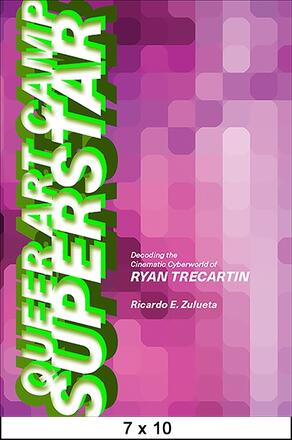
Queer Art Camp Superstar
Decoding the Cinematic Cyberworld of Ryan Trecartin
Alternative formats available from:
The first book-length study of Trecartin’s artistic genealogy, evolving aesthetics, radical approach to digital and Internet culture, and impact on contemporary art, film, and media.
Description
Hailed as "the most consequential artist to have emerged since the nineteen-eighties," American artist and filmmaker Ryan Trecartin has received numerous accolades for his kaleidoscopic, multilayered movies and multimedia installations. However, there exists to date no comprehensive study of this prolific artist's work. Queer Art Camp Superstar compensates for this absence of sustained critical analysis of Trecartin's work by looking closely at a selection of his most significant movies in order to discern the artist's artistic genealogy, evolving aesthetics, radical approach to digital and Internet culture, and impact on contemporary art, film, and media.
Examining Trecartin's substantial body of work, spanning from his early, pre-YouTube era series Early Baggage (2001–2003) to Temple Time (2016), Ricardo E. Zulueta adheres to a faithful chronological order, thus inviting readers to witness the ways thematic and formal concerns have evolved from Trecartin's earliest movies to his more recent multimedia cinematic installations. Through precisely chosen screen captures extracted directly from the movies, Zulueta demonstrates the serious attention paid to camera angles, mise-en-scène, and shot transitions, thus revealing and reflecting on the concepts that underwrite and are underwritten in these narratives. Giving careful attention to Trecartin's network of layered references to the grotesque and abject, carnivalesque and ludic, and camp imagery, Zulueta illustrates and explains how the artist takes on reality television, technology, fashion, consumption, and cyberspace.
Ricardo E. Zulueta is an artist and scholar who examines the interdisciplinary connections between contemporary art, film and media, gender and sexuality, and fashion studies. He has served as Lecturer at the University of Miami. His writing has appeared in Film and History and Fashion Theory, as well as in a number of books and catalogues. He is a recipient of fellowships from the New York Foundation for the Arts, Cintas Foundation, and National Foundation for Advancement in the Arts.